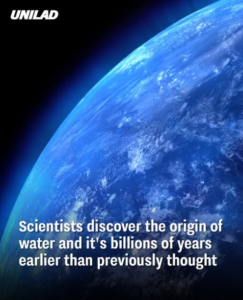Recent research has significantly advanced our understanding of Earth’s water origins, suggesting that our planet’s oceans may have formed billions of years earlier than previously believed. Traditionally, scientists posited that Earth’s water primarily originated from cometary and asteroidal deliveries during the late heavy bombardment period, approximately 3.8 billion years ago. However, new studies involving ancient zircon minerals have challenged this timeline.
Zircons, resilient minerals that preserve geological records, have been instrumental in this discovery. Analysis of zircons from Western Australia’s Jack Hills region indicates that liquid water and a stable atmosphere existed on Earth as early as 4.4 billion years ago. This finding implies that Earth’s oceans formed shortly after the planet’s accretion, significantly predating previous estimates. The presence of these minerals suggests that Earth’s surface cooled rapidly, allowing water to condense and accumulate in liquid form. citeturn0search14
This revelation aligns with other geological evidence, such as ancient pillow basalts from the Isua Greenstone Belt, which further support the existence of liquid water over 3.8 billion years ago. Collectively, these findings paint a picture of an early Earth that was not a molten, inhospitable world but rather one with stable liquid water, potentially conducive to the origins of life.
The implications of this research extend beyond Earth. Understanding the timing of water’s presence on our planet provides insights into planetary formation processes and the conditions necessary for life. It also prompts a reevaluation of models concerning the distribution of water in the early solar system and the potential for life on other planets.
In summary, the discovery that Earth’s oceans may have formed as early as 4.4 billion years ago offers a new perspective on our planet’s history, suggesting a much earlier onset of liquid water than previously thought. This finding not only reshapes our understanding of Earth’s geological timeline but also has profound implications for the study of life’s origins and the search for life elsewhere in the universe.


